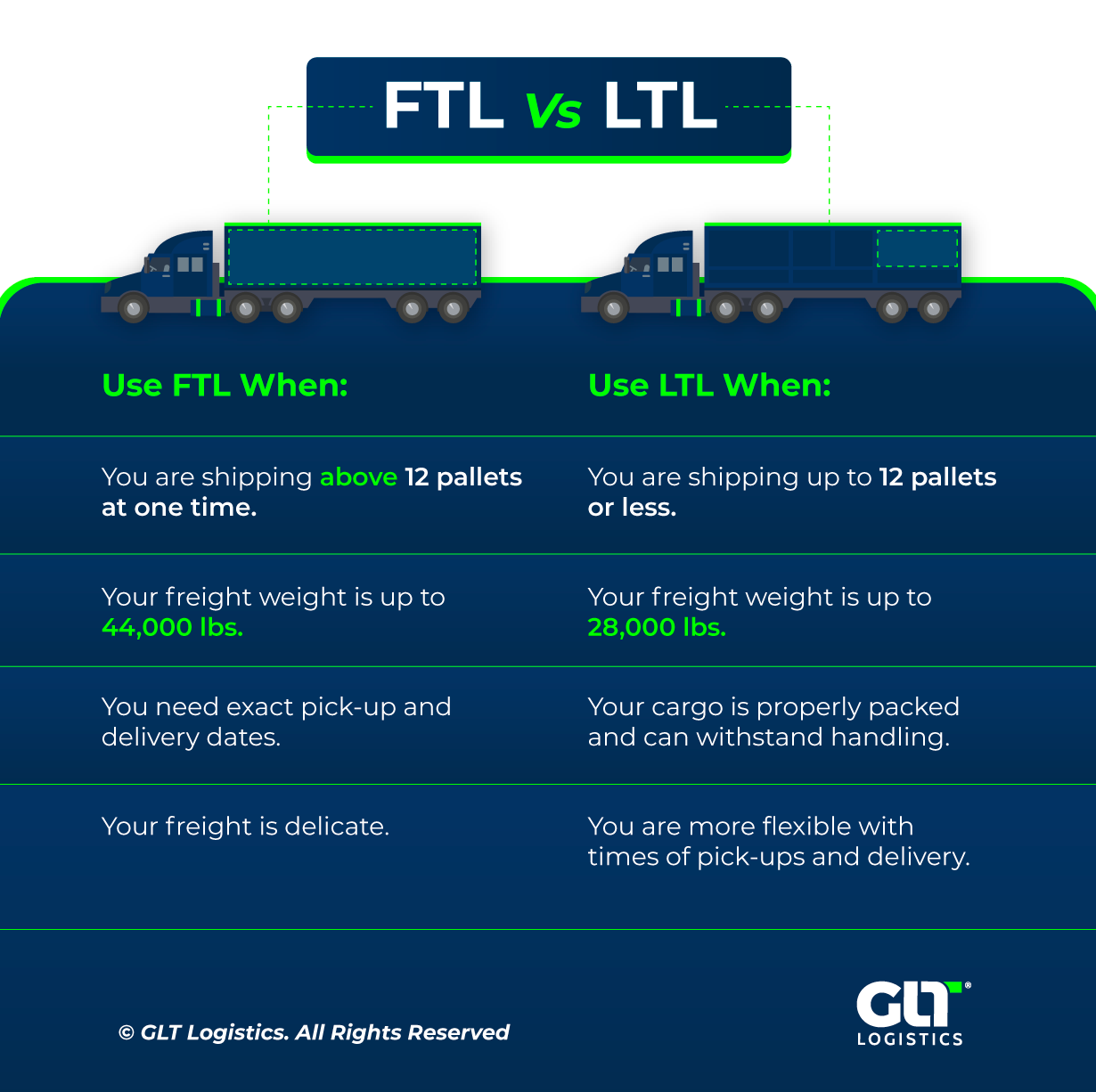
A common source of confusion for logistic professionals is the process of deciding which transportation mode is best suited for each type of freight. Although there are many similarities between both services, it’s important to identify their differences to finally choose the appropriate service that meets the specific needs of the freight. Expectations may vary from one service to the other. For this reason, shippers must be informed and get to know good enough what is offered in each service to avoid issues and prevent confusions.
– What is FTL? –
There are certain benefits that this service offers such as:
- No transloading at terminals meaning that the shipment never leaves its vehicle.
- Reduced probability of loss, damages, or theft.
- Optimal service to move fragile or hazardous freight.
- Fully dedicated service.
- Faster transit times.
FTL may be ideal for your company if is preferable to have all the freight confined in one truck and if you are looking for a faster method to move cargo.
– What is LTL? –
This service is growing exponentially in the shipping industry mainly due to an increase in eCommerce sales after the COVID-19 outbreak.
It’s important to mention that sometimes, this service is a better option than FTL because they move freight through established routes that are operated frequently. For example, in some cases, it may be more efficient to contract two or three LTL services than one of FTL.
– Case of Success –
As an example of what was previously mentioned we wanted to expose the case of a shipper in which we were able to break down a full truckload shipment of 19 pallets at 39,850 LBS at $3,400 into 2 LTL shipments at $1,900 total, thereby achieving a saving of $1,500 for the customer.
It might take another day or two to arrive, yet the load is moved.
How Does this Service Operate?
LTL service operates on a hub-and-spoke model. Freights are grouped at terminals to be dispatch to other terminals where they are distributed to the final destination.
Within this service, you’ll find certain advantages such as:
- Cost-effective solution as you pay for the space that will be used, not the whole truck.
- Eco-friendly service as you lower your company’s carbon footprint.
- Better shipping rates in some cases.
- Additional services which offer more flexibility.
- Better traceability and more accurate information.
It’s important to mention that this mode of transportation offers different type of services and accessorial that can be chosen depending on the freight specific necessities.
At the same time, it should be noted that these extra services must be included when requesting the quote to avoid billing surprises.
– Not Sure Which Service to Choose? –
Before choosing the right service, you must consider diverse factors such as point of origin, destination, product’s characteristics, budgets, and special conditions.
Seems like a lot of information to have in mind. Don’t worry, we got your back.

As a recommendation, it is favorable to work with a 3PL. They can help you find the most efficient way to consolidate your freight and choose the most desirable shipping model. (Ultram) They help customers to reduce costs, enhance carrier services, and you will have the opportunity to integrate with a wide network of carriers.



